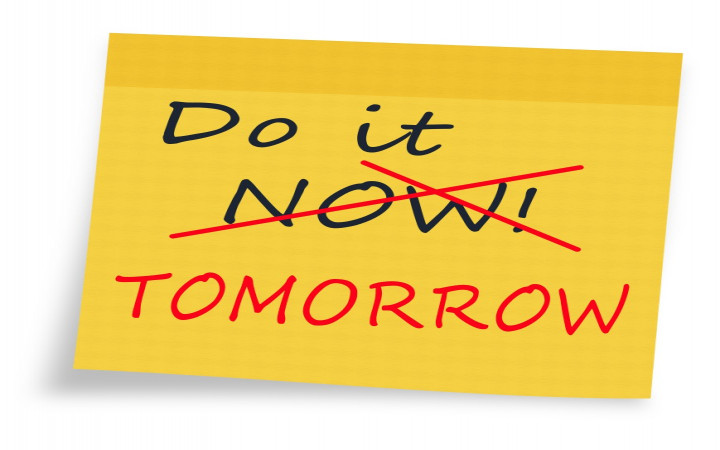Today’s Wonder of the Day was inspired by Mel. Mel Wonders, “Why do we procrastinate” Thanks for WONDERing with us, Mel!
Does any of this sound familiar? You have some homework that needs to be done. Some of it is due tomorrow, while the rest of it isn’t due for several more days. You know it needs to get done, yet you don’t start on it right away.
Instead, you go outside to play with your friends—because the weather is nice. When you come inside, you’re hungry, so you need to grab a snack, right? After your snack, you clean up your room a bit. You’ll get to your homework just as soon as your room is neat and tidy.
What’s going on here? It’s called procrastination. That’s a fancy word that means putting off something you need to do and doing other, less important, things first. Often, it means doing things you like before or instead of others you don’t like as much.
If you’ve ever waited until the last minute to finish up a task just before the deadline, then you’ve been guilty of procrastination. We all procrastinate from time to time. So why do we do it?
Some experts believe the pleasure principle is to blame. According to the pleasure principle, people choose to engage in things they enjoy while avoiding those they dislike or which may cause stress.
Makes sense, right? If given the choice between doing homework and playing outside, playing outside is going to win every time. Who wouldn’t rather play than do homework? The problem is that some things—including homework!—simply must be done.
Procrastinating puts off something you must do until a later time. It gives you immediate satisfaction while avoiding the unpleasant. Experts believe procrastination is a coping strategy that some people use to avoid the anxiety caused by tasks people don’t like.
While it might not sound like the worst thing to wait until the last minute, there are negative side effects of procrastination. Often, procrastination results in more stress, feelings of guilt, and maybe even a crisis if you put off something for so long that there’s no longer time to complete it by a deadline. Working under these feelings can lead to decreased productivity and often poor performance.
While most people procrastinate to some degree, it can become a big problem for some people. Missed deadlines and poor work due to putting things off can affect your grades, your job, or other areas of your life in a bad way.
So how do you stop procrastinating and start making progress? Get started! It’s that simple. Of course, part of getting started is figuring out where to start. If a task looks really big, break it down into small pieces. Make a plan that gives you enough time to work on each piece of the project. That way, you can complete the entire project on time.
Often, the task isn’t all that bad…except for that one part. If you do the worst part first, it’s sometimes much easier to do the entire task in a timely manner once the worst part is over. Use your self-control and do the hard part first.
Be mindful of your time and make a plan. Look at all you have to do and set priorities. Do the most important things first. Only allow yourself to do other things if there’s time left at the end of the day. Following a few simple rules like this will help you get things done and stop wasting time!
Standards: CCRA.R.1, CCRA.R.9, CCRA.R.10, CCRA.L.1, CCRA.L.2, CCRA.L.3, CCRA.L.4, CCRA.L.5, CCRA.SL.2, CCRA.SL.4, CCRA.L.6, CCRA.W.3, CCRA.W.6




